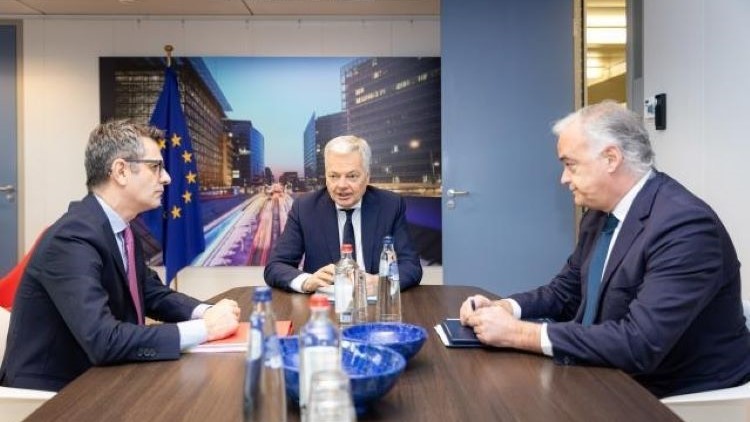Andrea Chamorro
Analyst at Fundación Alternativas
On 3 February, Senegalese President Macky Sall announced the postponement of the general elections scheduled for 25 February. He justified his decision on the grounds of a conflict between the National Assembly and the Constitutional Council, due to the launching of an investigation by Parliament to inspect the Electoral Commission, which is in charge of approving presidential candidates. But the delay of the elections is only the tip of the iceberg of a long-standing tension. Senegal is known as Africa’s most stable country, having suffered no civil wars or coups, but recently its democratic quality has been seriously undermined.
Sall, in power since 2012, is not eligible for re-election, so his party chose the current prime minister, Amadou Ba, as its candidate. However, the delay will allow Sall to remain in office for another ten months, something that has never happened before. Moreover, the fact that he cannot run again has not prevented him from putting major obstacles in the way of the main opposition candidates. The president’s decision was to be debated in parliament, but as the session was taking place, the opposition was expelled by the Gendarmerie. The events were interpreted by the population as an attack on democracy, and protests took place in the country’s main cities. In response, the government shut down the internet and closed down a newspaper. The deterioration of Senegalese democracy is evident, and the opposition PASTEF party denounces a “constitutional coup d’état”. However, it is not an event similar to the coups in the Sahel, as the army has not been involved, nor is a geopolitical shift in Senegal’s international alliances foreseen.
In total, 25 candidates were presented, but the Constitutional Council only accepted the candidacy of 20, two of them being particularly relevant in the current unstable situation in the country. One of them, PASTEF leader Ousmane Sonko, is the favourite of the youth, as he is the main defender of their rights and makes extensive use of social networks to disseminate his messages. At the same time, he has maintained an anti-colonial discourse and is particularly critical of France. But Sonko has faced two court cases, the first for an alleged rape, of which he was acquitted, and the second for insulting the Minister of Tourism, for which he was convicted and imprisoned, and disqualified from running, despite his successive hunger strikes. Sonko’s imprisonment was not well received by the population, and both trials were followed by protests, with 19 people killed in clashes with the police. The Senegalese population is characterised by its youth, as the average age in the country is 19 and growing rapidly, with an annual increase of 2.6 per cent. In Spain, the average age is 44 and the annual growth rate is 0.8%.
The economic situation in Senegal has deteriorated in recent years, first because of the pandemic and then because of the conflict in Ukraine. This has directly affected the population’s quality of life and the labour market, forcing some to emigrate. But Sonko’s imprisonment has not brought an end to the opposition against President Sall. PASTEF chose a new candidate, Bassirou Diomaye Faye, with Sonko’s approval.
Another presidential candidate that the Constitutional Council did not allow to contest the elections was Karim Wade. The decision was based on the fact that he had French-Senegalese citizenship, and the constitution states that candidates can only have Senegalese nationality. This candidate has also raised suspicions because he is the son of former president Abdoulaye Wade, in power between 2000 and 2012 and Sall’s mentor, who has a long history of corruption, for which he served three years in prison. Karim did renounce his French nationality in order to run, but the electoral commission claimed that this had not been done at the right time, which was a major setback for Sall’s plans, as he was a candidate favourable to his interests and Ba did not have every chance of winning due to his political attrition in recent years. On the other hand, Wade denounced the irregularities of the Constitutional Council for alleged influence peddling between members of this body and the candidate Ba.
International reaction has been swift, especially from the Economic Community of West African States (ECOWAS). ECOWAS has already withdrawn from Mali, Niger and Burkina Faso, where it imposed heavy sanctions and threatened intervention due to coups d’état. Senegal is one of the organisation’s key states due to its military, economic and demographic potential. For their part, the three ECOWAS outliers have created the Alliance of Sahel States and have begun a rapid process of political, military and economic cooperation. This new organisation has accused Sall of planning a coup d’état.
Senegal has good cooperative relations with many countries because of its geo-strategic potential and natural resources, such as fertile land and hydrocarbons that will begin to be exploited in the near future. Tensions continue to rise and the outlook for Senegal is uncertain, while neighbouring countries are following developments with concern.
© Fundación Alternativas / All rights reserved






